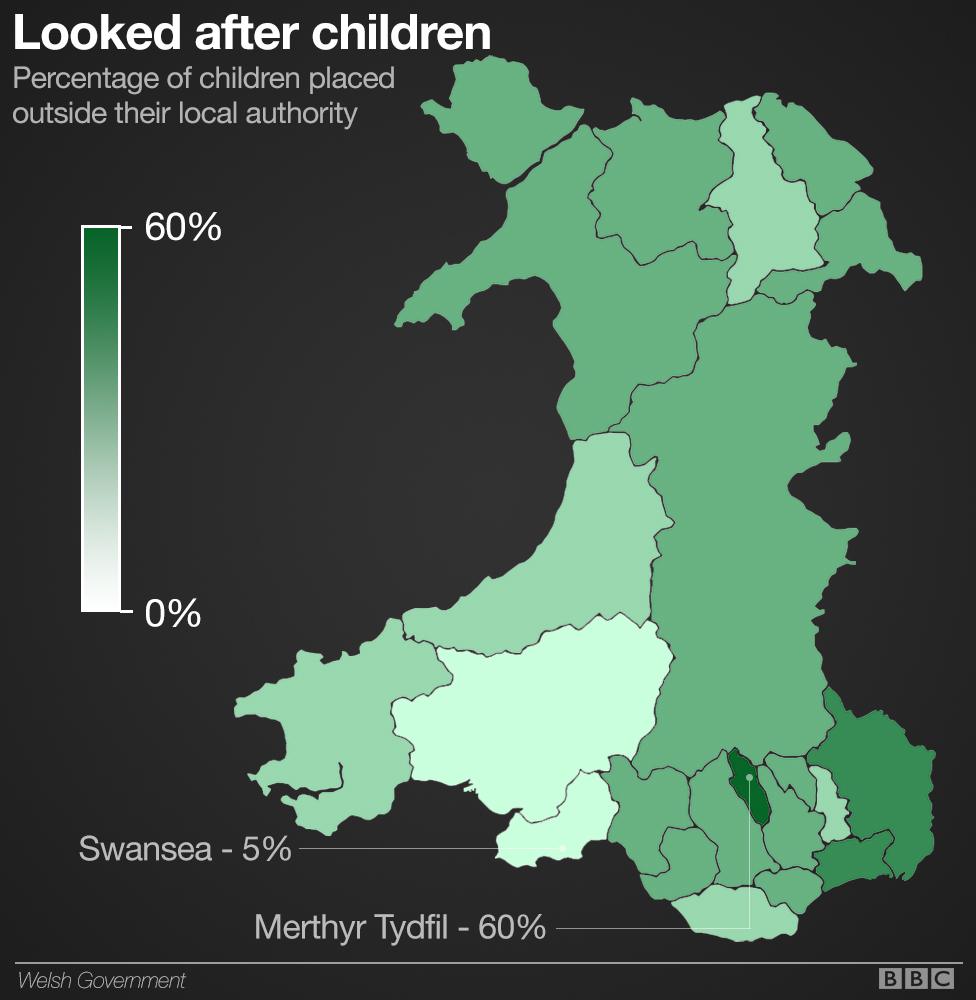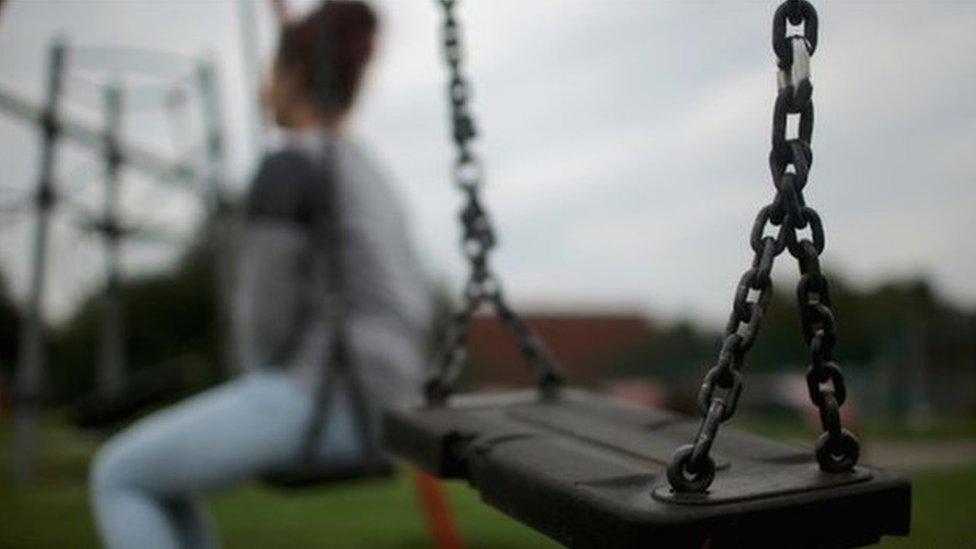27% of foster children placed out of council area
- Published

A quarter of children in care in Wales were placed in new homes outside of their county, new figures have shown.
About 1,500 placements out of 5,600 were made out of local authority areas.
Action for Children said in some cases there was a "lack of appropriate resources" locally to help looked-after children.
The Welsh Local Government Association (WLGA) said councils faced increasing demand for foster carers and a "difficult financial future".
Merthyr Tydfil council had the highest rate of looked-after children placed outside its area as of 31 March 2016, with 60% (84 out of 141), according to the Welsh Government figures, external.
Swansea council had the lowest rate, at 5% (24 out of 510 placements).
Merthyr Tydfil said it was aiming to reduce the number of children placed outside its area, but the geography of Wales meant being "close to home" for many meant being out of county - for instance, in nearby Rhondda Cynon Taf.
"Staff pay a great deal of attention to making a good match between the needs of a young person and a foster carer to ensure the best possible outcome," a spokeswoman said.
"Where it is not possible for a young person to be placed in authority, we try to make sure that we avoid disrupting school and other important connections and relationships."

In May, figures revealed dozens of Welsh looked-after children are put into care placements outside the country with at least 440 foster families needed in Wales.
"In some circumstances, it is in the best interests of looked after children to be placed beyond the boundaries of their local council - for instance in order to live with an extended family member," said Jennie Welham, of Action for Children's Torfaen MIST service.
"However, in other cases, being placed far from home can reflect a lack of appropriate resources being available to the child in their local area."
She said these resources can include suitable foster family placements and school placements, as well as access to appropriate mental health services.
"Looked-after children, having commonly experienced difficult life events and adverse circumstances, often have greater social, educational and emotional needs than is usual amongst children generally," she added.
Wales suffers from foster carer shortage
Ms Welham said these difficulties can be "compounded" by children being moved from foster placement to placement and being separated from friends, family, teachers and familiar environments.
The WLGA said councils take their responsibility towards children in care and foster families "extremely seriously".
"However, demand is increasing significantly, with a need for an additional 400 foster families in this year alone," a spokesman said.
"Initiatives such as When I am Ready, external, which allows children to remain with their foster carers until the age of 21, have been well supported by councils, but we cannot ignore the fact that it will become increasingly difficult to maintain this level of support in the face of rising demand and while local councils in Wales continue to face a very difficult financial future."
- Published8 May 2017

- Published29 June 2016

- Published21 May 2017
